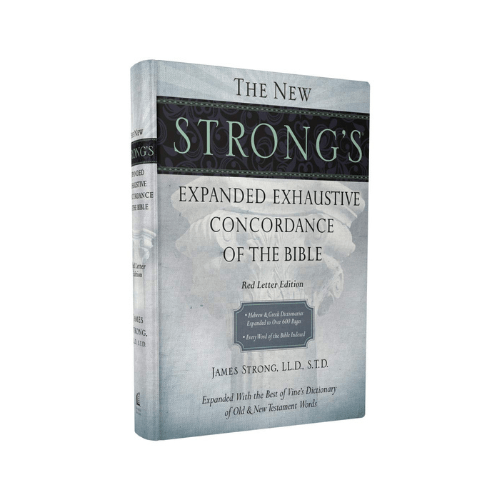Understanding the Parable
Have you ever wondered what God expects you to do with the gifts He has given you? In the parable of the talents (Matthew 25:14-30; Luke 19:12-28), Jesus tells a powerful story about a master who entrusts his servants with resources before leaving on a journey. Two servants invest wisely, doubling their master’s money. However, the third servant hides his portion out of fear. When the master returns, he rewards the faithful but punishes the one who did nothing.
Jesus often taught in parables because they reveal deep spiritual truths in ways we can understand. These stories challenge us to reflect on our lives and choices. The parable of the talents is not just about money—it’s about how we use everything God has given us, including our time, abilities, and opportunities.
In God’s Kingdom, faithfulness matters. He calls us to grow, serve, and invest in what truly lasts. Yet, many of us hesitate, held back by fear or uncertainty. So, what are we doing with our talents? Are we multiplying them for God’s glory or hiding them away? Let’s explore this parable and discover how we can be faithful stewards of God’s gifts!
The Meaning of “Talents” in the Parable
In the parable of the talents, the word “talent” referred to a large sum of money. In biblical times, a single talent was worth years of wages. This was not a small responsibility—the master entrusted his servants with something valuable, expecting them to use it wisely.
However, Jesus’ message goes beyond money. The parable of the talents symbolizes everything God gives us—our time, skills, spiritual gifts, and opportunities. Each of us has been entrusted with something unique. Some have great leadership skills, while others have compassion, creativity, or wisdom. God doesn’t give these gifts randomly; He expects us to use them for His glory.
Throughout Scripture, we see that God values growth and stewardship. He blesses us so we can bless others. If we neglect our gifts, we risk losing them. But when we invest in what He has given, He multiplies our impact. Like the faithful servants in the parable, we are called to act with boldness, not fear. So, how are we using our talents? Are we developing them, or are we letting them sit unused? God calls us to be faithful stewards, making the most of what He has placed in our hands.
The Three Servants: Different Responses
In the parable of the talents, Jesus presents three servants who receive different amounts from their master. Their responses teach us about faithfulness, fear, and accountability in God’s Kingdom.
The Faithful Servants (Matthew 25:16-17)
The first two servants immediately put their talents to work. They invest wisely and double what they were given. Their diligence shows that faithfulness requires action, not passivity. They don’t hesitate, make excuses, or waste time. Instead, they recognize the value of what their master entrusted to them.
Because of their faithfulness, the master rewards them. He praises their efforts and invites them to share in his joy. This illustrates how God blesses those who use their gifts wisely. When we serve Him with what we have, He entrusts us with even more.
The Fearful Servant (Matthew 25:18, 24-25)
The third servant reacts differently. Instead of investing his talent, he buries it in the ground. Fear drives his inaction—fear of failure, judgment, and responsibility. Rather than stepping out in faith, he makes excuses.
His response teaches an important lesson: fear can paralyze us. When we let fear control us, we miss opportunities to serve and grow. God does not call us to play it safe. He calls us to trust Him and take action.
The Master’s Judgment (Matthew 25:26-30)
When the master returns, he judges each servant’s actions. The faithful ones are rewarded, but the fearful servant faces harsh consequences. His talent is taken away and given to another. He is cast out, showing that neglecting God’s gifts leads to loss.
This parable reminds us that we are accountable for what God gives us. Faithfulness leads to reward, but fear and inaction lead to regret. What will we do with what He has entrusted to us?
Biblical Principles of Stewardship
The parable of the talents teaches us that everything we have is from God. He calls us to be faithful stewards, using His gifts wisely. But what does biblical stewardship look like? Let’s explore four key principles.
Everything Belongs to God (Psalm 24:1)
The Bible makes it clear: everything in heaven and earth belongs to God. We may work hard, but ultimately, He is the true owner of all things. Our time, abilities, money, and opportunities are entrusted to us for a season.
Since we are managers, not owners, we must handle these resources with wisdom. Just as the master in the parable of the talents expected a return, God expects us to invest what He has given us. When we acknowledge His ownership, we begin to steward our lives with greater purpose.
Faithfulness Over Results (1 Corinthians 4:2)
In today’s world, success is often measured by numbers—money, followers, or achievements. However, God’s measure of success is different. He values faithfulness above all else.
The faithful servants in the parable of the talents were not praised for the amount they gained but for their diligence. God isn’t asking us to be the most talented or the most successful. He simply wants us to use what we have with faithfulness and obedience.
Using Gifts for God’s Glory (1 Peter 4:10-11)
Every talent, skill, and resource we have is meant to serve God and bless others. Our gifts are not just for personal gain; they are tools for advancing God’s kingdom.
Peter reminds us that we should use whatever gifts we have to serve one another. Whether we teach, encourage, give, or lead, our talents should point people to God. When we serve with the right heart, He is glorified, and our impact multiplies.
Avoiding Spiritual Complacency (Proverbs 13:4)
One of the greatest dangers in stewardship is complacency. The lazy servant in the parable of the talents lost everything because he refused to act. Fear, excuses, or distractions can keep us from using what God has given us.
Growth requires effort. Proverbs teaches that the diligent will prosper, but the lazy will go hungry. We cannot afford to sit back and do nothing. God calls us to step forward, take action, and trust Him with the results.
Are we actively using our talents for God’s glory, or are we letting them sit unused? He has given us much—let’s be faithful stewards!
Overcoming Fear and Taking Action
In the parable of the talents, fear kept one servant from using what his master had given him. Instead of investing, he buried his talent. Many of us do the same. We hesitate, doubt ourselves, or fear failure. But God calls us to step out in faith.
The Danger of Playing It Safe (Hebrews 11:6)
Faith always requires risk. Hebrews 11:6 tells us that without faith, it is impossible to please God. Playing it safe might feel comfortable, but it leads to stagnation. The fearful servant in the parable of the talents lost everything because he refused to act.
God doesn’t want us to live in fear. He wants us to trust Him, take risks for His kingdom, and use our talents boldly. If we only serve when it feels safe, we miss opportunities to grow and impact others.
Identifying Your Talents and Calling (Romans 12:6-8)
Each of us has unique gifts. Romans 12:6-8 reminds us that God gives different talents to different people. Some are gifted in teaching, others in serving, giving, or leading. Recognizing these gifts is the first step toward using them effectively.
We can start by asking: What comes naturally to us? What do others see in us? Where do we feel passion and purpose? When we identify our talents, we can begin developing them for God’s glory.
Stepping Out in Faith (Joshua 1:9)
God constantly calls His people to be strong and courageous. Joshua 1:9 reminds us that He is with us wherever we go. Fear may try to hold us back, but faith moves us forward.
God has given each of us something valuable. The question is, will we use it? Let’s take action and trust Him with the results!
The New Strong’s Expanded Concordance
The best concordance for word study! This exclusive new edition of a legendary classic puts generations of biblical research at your fingertips.
Applying the Parable to Your Life
The parable of the talents is not just a story—it’s a call to action. God has entrusted each of us with gifts, time, and opportunities. But are we using them wisely, or are we holding back?
Personal Reflection Questions
It’s easy to assume that only pastors or missionaries are called to serve. However, God has given every believer unique abilities and opportunities. Take a moment to reflect:
- What talents, skills, and resources has God placed in your life?
- Are you using them to glorify Him and bless others?
- Have fear or excuses kept you from stepping out in faith?
In the parable of the talents, the master expected growth. Likewise, God desires that we develop and use what He has given us. If we aren’t actively investing in His kingdom, we risk losing valuable opportunities to serve.
Practical Steps to Faithful Stewardship
Faithful stewardship starts with small, intentional steps. Here are a few practical ways to use your God-given gifts:
- Serve in ministry: Whether teaching, encouraging, or giving, find ways to serve within your church or community.
- Use your skills in daily life: Your workplace, family, and friendships offer opportunities to reflect God’s love.
- Be intentional with time and resources: Avoid distractions that pull you away from God’s purposes. Prioritize what truly matters.
Even small efforts, when done with faith, can have a lasting impact. God honors those who use what they have for His glory.
Encouragement to Stay Accountable
We grow best when we surround ourselves with godly counsel. Wise mentors and strong Christian friendships help keep us on track. Proverbs 27:17 reminds us, “As iron sharpens iron, so one person sharpens another.”
Find people who will encourage you, challenge you, and hold you accountable. When we commit to faithful stewardship, we position ourselves to hear, “Well done, good and faithful servant.”
So, what are we doing with what God has given us? Let’s choose to invest, grow, and step forward in faith!
Final Thoughts: The Reward of Faithfulness
The parable of the talents reminds us that faithfulness brings great reward. When the master returned, he praised the diligent servants, saying, “Well done, good and faithful servant” (Matthew 25:21). Can we imagine anything more joyful than hearing those words from our Heavenly Father?
God delights in those who use what He has given them. Faithfulness is not about how much we accomplish but about our willingness to serve Him. When we invest our time, gifts, and resources wisely, He blesses our efforts and entrusts us with more.
It’s easy to get distracted or discouraged, but God calls us to keep moving forward. Every opportunity He gives us is a chance to glorify Him. Whether big or small, our actions matter in His kingdom.
Now is the time to take action. Are we using our God-given gifts, or are we holding back? Let’s choose faithfulness over fear, trusting that He will multiply our efforts. One day, we will stand before Him. Will we hear, “Well done”? Let’s live so that we will!
Frequently Asked Questions (FAQ) About the Parable of the Talents
1. What is the main message of the parable of the talents? The parable of the talents teaches us about faithful stewardship. God entrusts us with gifts, abilities, and opportunities, expecting us to use them wisely for His glory. It also warns against fear and complacency, showing that failing to act leads to loss.
2. Does the parable of the talents only refer to money? No, while a “talent” in biblical times was a large sum of money, the parable’s meaning goes beyond finances. It represents all the resources God gives us, including time, skills, spiritual gifts, and opportunities.
3. Why did Jesus use parables to teach lessons? Jesus used parables to make deep spiritual truths easier to understand. Parables engage the listener, challenge their thinking, and reveal the heart of God’s Kingdom in a relatable way.
4. What happened to the servant who buried his talent? The servant who buried his talent was rebuked and lost what he had. This symbolizes the consequences of fear and inaction in serving God.
5. How can we apply the parable of the talents to our lives today? We apply this parable by using our God-given gifts faithfully. Whether in ministry, work, or relationships, we should invest in what God has entrusted to us.





